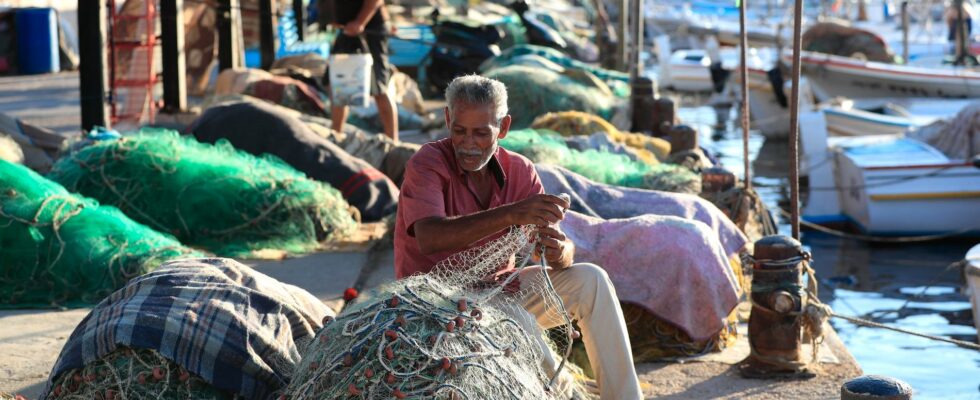unsaveSave
expand-left
full screen
chevron-rightnext
Fisherman Saber al-Sayyad goes through his nets in the port of Sidon. Israel has announced that fishing in the area is now associated with danger to life. Picture taken on Tuesday.
1 / 2Photo: Mohammad Zaatari/AP/TT
Israel orders people to stay away from a third of Lebanon’s coast. For the crisis-stricken country’s fishermen, it is a death sentence.
Their workplace – the sea – is now an active combat zone.
Dry fishing nets lie in piles along the quay in Sidon. The harbor is full of boats. A short distance away, the town’s usually bustling fish market is unusually quiet.
– The Lebanese army told us that we are not allowed to go out and we respect that, says fisherman Mohammed Bidawi.
– If it continues like this, the market will have to close.
The fishing ban affects thousands, according to Bidawi – in a Lebanon already plagued by an economic crisis of historic proportions.
The Lebanese warning came after Israel on Monday announced increased attacks against Hezbollah targets along Lebanon’s southern coastal stretch, where, among other things, the city of Sidon is located. The population was urged to stay away from the coast south of the al-Awali River, which flows into the Mediterranean Sea north of Sidon.
Thus, around a third of Lebanon’s coast has turned into an active combat zone. Along the seafront in Sidon, many shops and cafes remain closed following Israel’s warning.
Fisherman Hamza Sonbol says that he and his colleagues practically “became destitute overnight”. Many are day laborers – the days they catch fish they eat, otherwise they don’t.
Colleague Issam Haboush worries for his family, one of hundreds in the area who he says depend on fishing.
– We provide for our children through fishing. If we don’t go out to sea, we won’t have any food to eat, he says.
FACTS Lebanon – a country in crisis
Lebanon’s economy is in freefall, with the threat of state bankruptcy and the dire need for international crisis loans. The state has been estimated to be one of the most heavily indebted countries in the world, relatively speaking.
Tens of thousands of jobs have been lost and the crisis has led to widespread shortages of water, electricity, medicines and functioning communication services.
The disaster on August 4, 2020, when a huge port explosion devastated parts of the capital Beirut, made the situation even worse. The attempts to investigate what was behind it have become yet another bat in the quarrels within the country’s ruling elite.
The escalating conflict between Israel and Hezbollah, an Iran-backed movement described as a “state within a state” in Lebanon, is further hitting the crisis-stricken country’s economy.
Read more
